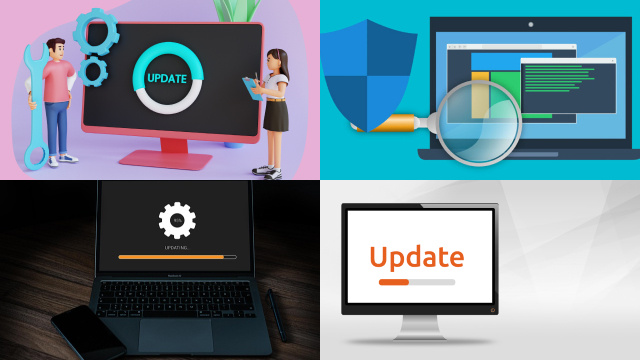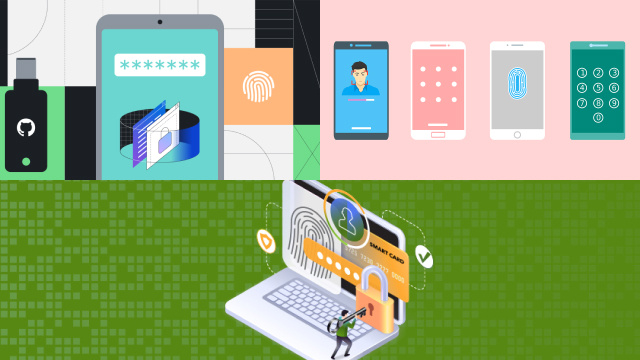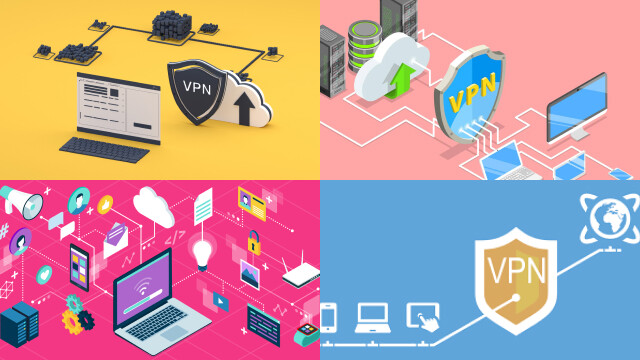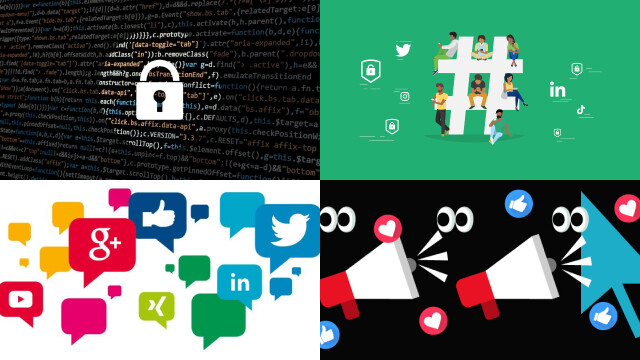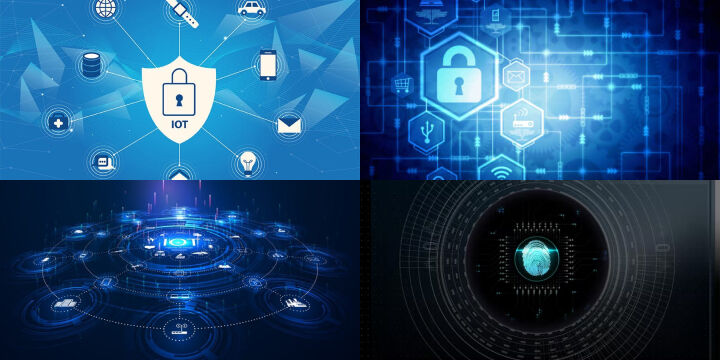Keep your software and devices up-to-date
Keeping your software and devices up-to-date is crucial for maintaining your cybersecurity. Regularly updating your software and devices can help protect against known vulnerabilities and exploits that cybercriminals use to gain unauthorized access to your systems.
Software and device updates often include security patches and bug fixes that address vulnerabilities that have been discovered since the previous release. By not updating your software and devices, you are leaving yourself open to potential cyber attacks.
In addition to security patches, updates can also include new features and improvements to the user experience. By keeping your software and devices up-to-date, you can ensure that you are taking advantage of the latest technology and functionality.
It’s important to note that not all updates are automatic, and some may require manual installation. Make sure to regularly check for updates and install them as soon as they become available.
In summary, keeping your software and devices up-to-date is a simple but essential step in protecting your cybersecurity. By regularly updating your systems, you can help ensure that you are protected against the latest threats and taking advantage of the latest technology.
Use strong and unique passwords
Using strong and unique passwords is one of the most important steps you can take to protect your online accounts from cybercriminals. Passwords are the first line of defense against hackers and cyber attacks, and weak or easily guessed passwords make it easier for cybercriminals to gain access to your personal information.
To create strong and unique passwords, you should use a combination of letters, numbers, and symbols. Avoid using common words, phrases, or personal information that could be easily guessed or discovered. It’s also important to use a different password for each of your online accounts to prevent a single security breach from compromising multiple accounts.
To manage your passwords, consider using a password manager tool. These tools securely store and generate strong passwords for your accounts, making it easy to use strong and unique passwords without the need to remember them all. Additionally, enabling two-factor authentication (2FA) can provide an extra layer of security to your accounts by requiring a second verification method in addition to your password.
Enable two-factor authentication (2FA) wherever possible
In today’s digital age, it is essential to take extra measures to protect our online accounts. One of the most effective ways to secure our accounts is by enabling two-factor authentication (2FA) wherever possible.
2FA adds an extra layer of security by requiring a second method of authentication beyond just a password. This could be a fingerprint scan, a code sent to your phone, or a physical security key. Even if someone gains access to your password, they still need the second factor to access your account.
Many popular online services now offer 2FA as an option, including email providers, social media platforms, and banking apps. It is recommended to enable 2FA on all of your accounts that offer it, especially those containing sensitive information such as financial or personal data.
Keep in mind that 2FA is not foolproof, but it significantly reduces the risk of unauthorized access to your accounts. By using strong passwords and enabling 2FA, you can greatly increase the security of your online presence and protect yourself from potential cyber attacks.
Be wary of suspicious emails and phishing scams
Phishing scams have become increasingly prevalent in recent years, and it’s important to be cautious when receiving emails from unknown senders. These emails often contain links or attachments that can lead to malicious websites or install malware on your device.
To avoid falling prey to these scams, be wary of emails from unknown senders, especially those that urge you to act quickly or provide sensitive information. Always double-check the sender’s email address to ensure it is legitimate and be cautious of generic salutations or misspellings.
If you are unsure about the legitimacy of an email, do not click on any links or download any attachments. Instead, go directly to the company’s website and log in to your account to verify any requested information or contact the company directly.
Enabling spam filters on your email account can also help reduce the number of phishing emails you receive. It’s essential to stay vigilant and cautious when it comes to suspicious emails to protect yourself and your personal information.
Use a Virtual Private Network (VPN) for added security
A Virtual Private Network (VPN) is a technology that encrypts your internet connection, making it more secure and private. When you use a VPN, your online activities are hidden from prying eyes, including your internet service provider (ISP), hackers, and government agencies.
One of the main benefits of using a VPN is that it provides an additional layer of security to your internet connection. This is especially important when using public Wi-Fi networks, which are often unsecured and vulnerable to attacks. By encrypting your data and routing it through a remote server, a VPN helps to protect your sensitive information from being intercepted by malicious third parties.
Another advantage of using a VPN is that it can help you bypass geo-restrictions and access content that may be blocked in your region. For example, you can use a VPN to access streaming services that are only available in certain countries, or to unblock websites that may be restricted in your location.
Overall, using a VPN is an effective way to enhance your online security and privacy. However, it’s important to choose a reputable VPN provider that doesn’t keep logs of your online activity and offers strong encryption protocols.
Regularly backup important data and files
In today’s digital age, the importance of regularly backing up important data and files cannot be overstated. Data loss can occur due to a variety of reasons, including cyber attacks, hardware failures, and natural disasters. Backing up your data regularly ensures that you don’t lose important information that cannot be recovered.
There are many ways to back up your data, such as using external hard drives, cloud storage services, or even a combination of both. It’s important to choose a backup solution that works best for your specific needs and budget.
To make the backup process easier, consider setting up automatic backups to occur on a regular basis. This will ensure that your data is constantly backed up without you having to remember to do it manually.
Remember that data backup is not a one-time task but a continuous process. It’s important to periodically check that your backups are working correctly and to update them as needed. By regularly backing up your important data and files, you can have peace of mind knowing that your information is secure and accessible in the event of a disaster or data loss.
In today’s digital age, it’s easy to forget the importance of limiting personal information shared online. However, it’s essential to be mindful of what information you post on the internet and how it can be used by others. One way to do this is to limit the amount of personal information you share on social media platforms or public forums. Avoid sharing sensitive information such as your full name, address, phone number, and email address online.
Another way to limit your personal information is to use a pseudonym or nickname instead of your real name. This can help to protect your identity and prevent others from finding information about you online. Also, be cautious about filling out online forms that ask for personal information, such as date of birth or social security number, and only provide this information when necessary.
Remember, the less personal information you share online, the less vulnerable you are to cyber threats such as identity theft or hacking. So, think twice before sharing personal information on the internet.
Safeguarding IoT Devices: Securing the Internet of Things
The Internet of Things (IoT) has transformed the way we interact with and manage various devices in our daily lives, from smart thermostats to connected cars. However, the convenience of IoT comes with potential security risks. Ensuring the security of your IoT devices is crucial to protect your privacy and prevent them from becoming tools for cyberattacks.
- Change Default Credentials: Many IoT devices come with default usernames and passwords, which are often easy for hackers to guess. Always change these credentials to strong, unique ones.
- Update Firmware Regularly: Manufacturers release firmware updates to fix security vulnerabilities. Keep your devices secure by regularly updating their firmware.
- Network Isolation: Create a separate network for your IoT devices to isolate them from your primary network, reducing the potential for unauthorized access.
- Implement Network Segmentation: If network isolation is not feasible, segment your network to create different zones, each with varying levels of access control and security.
- Firewalls and Intrusion Detection Systems: Employ firewalls and intrusion detection systems to monitor and block suspicious network traffic.
- Disable Unused Features: Many IoT devices come with features that you may not need. Disable any unnecessary functionalities to reduce potential attack vectors.
- Regular Audits: Periodically review the devices connected to your network and remove any that are no longer in use or relevant.
- Use Strong Encryption: Ensure that data transmitted between your IoT devices and the cloud is encrypted to protect it from interception.
- Research and Choose Trusted Brands: Prioritize reputable manufacturers and brands with a history of providing secure products.
- Regular Monitoring: Continuously monitor your IoT devices for any unusual activities or behaviors that may indicate a security breach.
- User Education: Educate users about the risks associated with IoT devices and the importance of good security practices.
- Security Software: Consider using security software and tools specifically designed for IoT security, if available.
Securing IoT devices is an ongoing process that requires vigilance and regular maintenance. By following these practices, you can mitigate the security risks associated with IoT devices and enjoy the benefits of a connected and convenient lifestyle without compromising your privacy and security.
Stay informed on cyber security threats and best practices
Staying informed on cyber security threats and best practices is essential for protecting your online safety. With the increasing amount of data breaches and hacking attempts, it’s important to stay updated on the latest cyber threats and security measures to avoid becoming a victim.
One of the best ways to stay informed is to regularly read reputable sources of cyber security news and advice. These sources can provide insights into the latest threats, vulnerabilities, and security practices. Additionally, attending cyber security events, webinars, and conferences can also provide valuable information and networking opportunities.
It’s also important to be aware of your own online behavior and to follow best practices for cyber security. This includes using strong and unique passwords, enabling two-factor authentication, being wary of suspicious emails and links, and using a virtual private network (VPN) for added security. Regularly backing up important data and limiting personal information shared online are also important steps in protecting your online privacy and security.
By staying informed and following best practices for cyber security, you can minimize your risk of falling victim to cyber threats and keep your online presence safe and secure.

